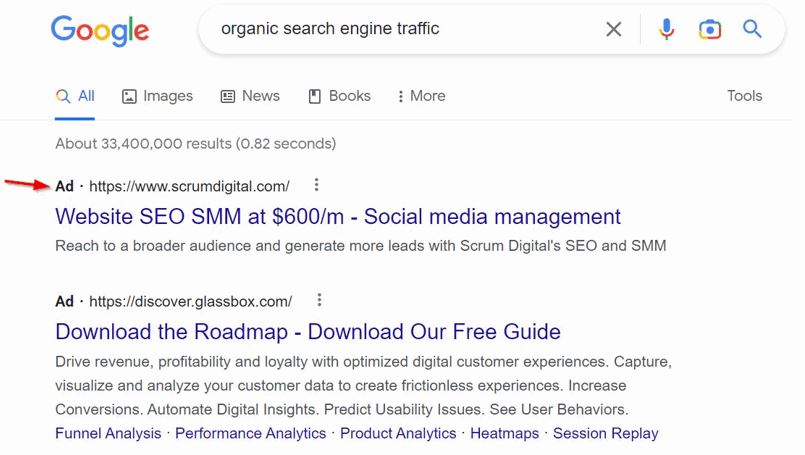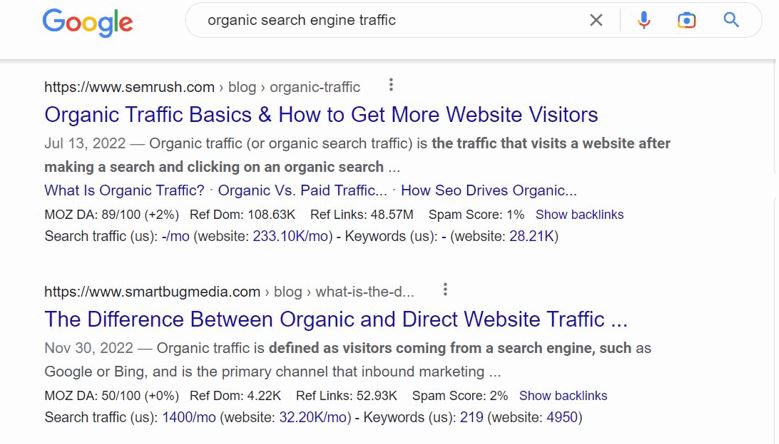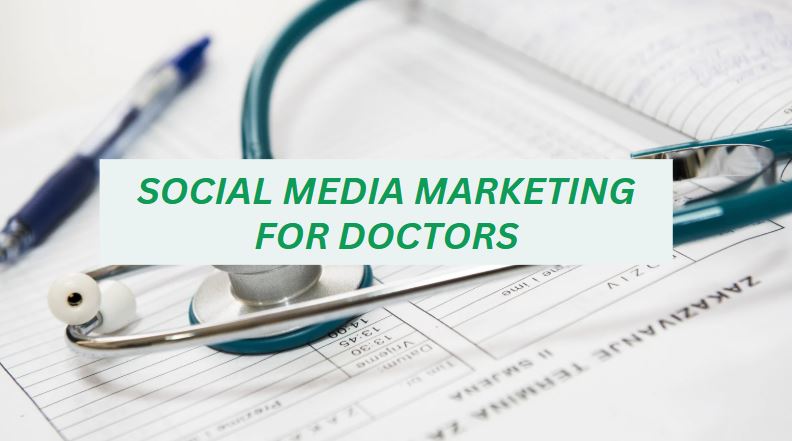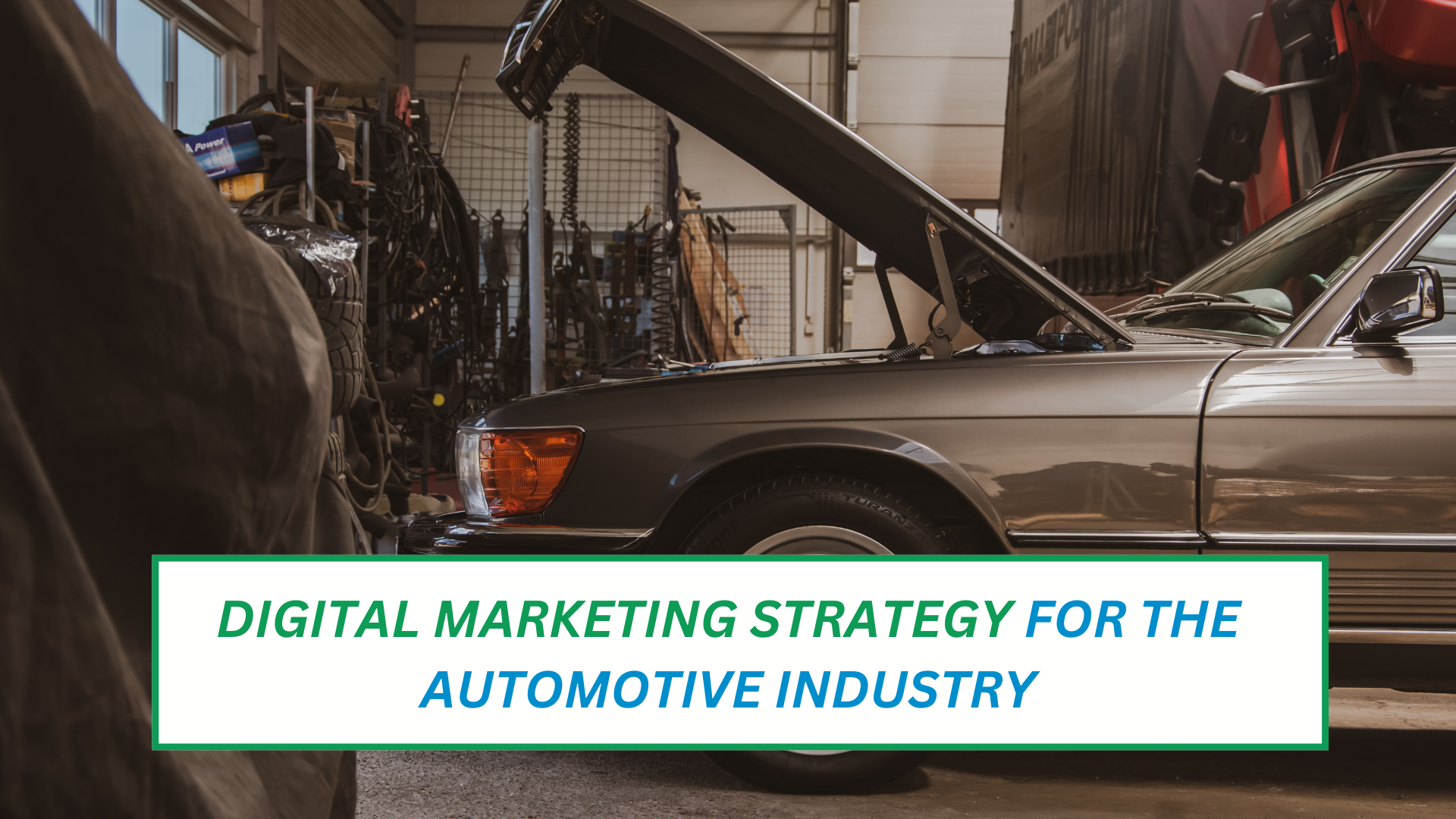There are essentially two ways to drive high-quality traffic to a web page: Organic and paid. Both traffic generation methods have their pros and cons, so the decision of which one to use depends on your goals and resources. In this blog post, we’ll get into the details of organic vs paid traffic, helping you decide which one’s the right fit for your business. Let’s dive in.
Organic Vs Paid Search Engine Traffic: Which One to Use?
What is Paid Search?
Paid search results are the results you see at the top of the page after searching for a keyword.
Here’s what they look like:

Advertisers pay search engines like Google to place their web pages there. Search engines charge advertisers based on each click. For instance, if the pay-per-click for a keyword is $2, you’ll be charged $2 every time someone clicks on your ad.
Advantages of Paid Traffic
Quick Results
A paid search engine campaign brings traffic to your website almost instantly, making it perfect for businesses that want quick leads or sales.
Greater Control
With PPC search engine ads, you can select your target audience and keywords. This lets you attract highly relevant traffic to your web pages.
Higher Visibility
Paid search engine results appear above organic results, which makes them more visible to your target audience.
Disadvantages of Paid Traffic
Higher Upfront Cost
Search engine advertising requires a higher initial investment. Plus, running a successful campaign requires skill and experience.
Short-Term Results
Paid ads aren’t a long-term solution. They can only generate traffic and results as long as your ad is active.
What is Organic Search?
Organic search traffic refers to the traffic that comes from unpaid search engine results. Here’s what organic search results look like:

In order to rank a web page organically on the first page, you need to make sure it’s optimized for search engines and users. Search engine optimization is further divided into three parts:
- On-page
- Off-page
- Technical
Search engines look at every aspect of your website before deciding its position for relevant keywords.
Advantages of Organic Search Traffic
Cost-Effective
SEO typically doesn’t involve a lot of upfront investment mainly because you don’t have to spend on advertising. And since it can help you attract a lot of high-quality traffic, the return on investment is typically super high.
Long-term Results
The process of optimizing a website for search engines can be time-consuming, but the results are long-term, too. This means once your website ranks on the first page, it’ll continue to drive traffic for a long period unless another website outranks it.
Disadvantages of Organic Search Traffic
Limited Control
A major disadvantage of organic search traffic is that it can be unreliable and unsteady. Search engine algorithms largely control your website’s organic positions.
Similarities Between Paid and Organic Search
The goal of both paid and organic search is the same: Driving more traffic to a website. Plus, it can be hard to rank at the top of paid as well as organic results because of the high competition.
Organic Vs Paid Search: Which One Should You Use?
As you can see, both paid and organic traffic have their pros and cons. Which one’s better for you comes down to your business goals. So, before focusing on one strategy, ask yourself a few questions.
Do You Want Quick Results?
If you want to attract traffic almost immediately, paid traffic would be the right option. However, if you want more sustainable long-term traffic, invest in organic traffic.
Do You Have the Resources?
Paid traffic costs upfront money, organic traffic doesn’t. However, remember that ranking organically also requires an investment of time and skill.
Do You Want More Control?
Search engine ad platforms like Google Ads offer greater control over your target audience and how you appear before them. In addition to that, you’re generally better able to analyze and improve your ads based on how they’re performing.
Who’s Your Target Audience?
Paid ad platforms let you hyper-target your audience, whereas a portion of your organic audience may be slightly irrelevant.
FAQs
What is Organic Traffic and Paid Traffic?
Organic traffic refers to traffic that you attract from search engines without paying. Paid traffic is when you pay search engines for traffic.
Does Paid Traffic Increase Organic Traffic?
There’s no direct correlation between organic and paid traffic. To increase organic traffic, you need good SEO and content.
What is an Example of Organic Traffic?
An example of organic traffic would be a website getting traffic from search engines like Google and Bing.
Organic Vs Paid: When to Use Both
If you want to generate quick and long-term results, investing in both organic and paid traffic would be the way to go. In some cases, relying on a single source of traffic isn’t a good option. For instance, if you’re a new business, you may want to invest in paid ads for quick results and also focus on building organic traffic for long-term results. Another example would be a growing business with a decent ad budget. Paid traffic generates quick results while organic traffic keeps the long-term game strong. Having said that, your website’s design, user interface, and content need to be top-notch in order to perform well on both fronts.
Wrapping Up
Both paid and organic traffic have their merits and demerits. Ultimately, it’s your goals and budget that decide which one should you go with. Organic search traffic is cost-effective and generates long-term results but can be time-consuming. On the flip side, paid traffic generates quick results and offers greater control, but only works in the short term. If you have the budget, investing in both strategies will help you generate the best results. SEO is a long-term game, whereas paid traffic can get you quick leads or sales.
You May Also Like:




